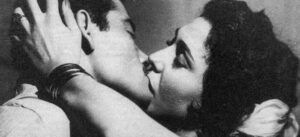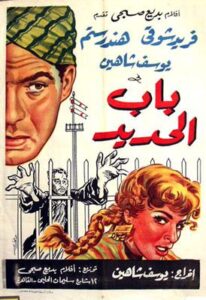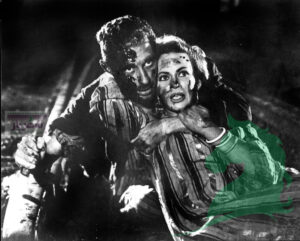كتاب ” شخصية مصر في السينما ” صفحات من ذاكرة مبدع مهاجر بقلم كمال القاضي في ” مختارات سينما إيزيس “
كتاب ” شخصية مصر في السينما ” : صفحات من ذاكرة مبدع مصري مهاجر
بقلم
كمال القاضي
قبل أن ندخل إلى صفحات كتاب «شخصية مصر في السينما» يتوجب علينا أولاً أن نُلقي الضوء على مؤلف الكتاب، الناقد والكاتب والسيناريست والمخرج التسجيلي صلاح هاشم مصطفى، المُهاجر إلى العاصمة الفرنسية باريس منذ أوائل السبعينيات من القرن العشرين، تخرج هاشم في كلية الآداب – جامعة القاهرة – قسم اللغة الإنكليزية عام 1969، ثم سافر بعدها إلى فرنسا، حيث درس السينما وموسيقى الجاز والأدب الأفرو أمريكي في جامعة فانسان التجريبية في باريس.
من هنا بدأت رحلته مع السينما والموسيقى والإبداع، أنجز الكاتب المعروف مجموعة قصصية واحدة بعنوان «الحصان الأبيض»، صدرت منها الطبعة الثالثة قبل عدة أشهر، رغم أن الطبعة الأولى منها صدرت في الستينيات وكانت باكورة إبداع الشاب الرحالة، المُسافر على أجنحة الليل والخيال.

كتاب «شخصية مصر في السينما» هو أحد الإصدارات المهمة لعام 2025 عن السينما المصرية وتاريخها ورموزها ودهاليزها وأسرارها وتأثيراتها في المهرجانات الدولية والعالمية، فهو لا يقدم دراسة تحليلية فقط لعينات من الأفلام كما هو معهود، وإنما يشمل الكثير من التفاصيل عن رحلات السينما المصرية داخلياً وخارجياً، عبر العديد من المهرجانات المحلية والدولية والعالمية. وبحكم التجربة الثرية للمؤلف، لم يكتف بذكر عناوين المهرجانات وأثر السينما المصرية في فعالياتها، وإنما نقل بحرفية ومهارة العديد من الحكايات والحواديت، التي دارت في كواليس كل مهرجان مُتتبعاً مسيرة الفيلم المصري، ومركزاً على أهم ما يميزه فنياً وتكنيكياً وموضوعياً، ذلك أنه لم يترك معلومة ذات صلة بالفن السينمائي وعلاقته بالثقافة والفكر والسياسة، إلا وذكرها في سياقها الصحيح مع ربطها بالأحداث والأشخاص.

لقد أورد صلاح هاشم اسم صلاح أبو سيف عدة مرات، باعتباره الأستاذ والمُعلم وصاحب الفضل في الحفاظ على سمات المدرسة الواقعية وأصولها، فضلاً عن دورها الرائد في التعبير عن القضايا الاجتماعية الأكثر حساسية كأزمة الفقر والبطالة وما يتبعهما من تأثيرات سلبية شديدة الوطأة. كما تحدث المؤلف أيضاً في كتابة الذي يقع في 280 صفحة من القطع المتوسط عن رموز الإخراج في السينما المصرية، أمثال كمال الشيخ ويوسف شاهين وشادي عبد السلام ومحمد خان وداود عبد السيد وعاطف الطيب، إذ ألقى الضوء على أهم التجارب المُفسرة لعبقرية هؤلاء الكبار، مع الإشارة للاختلاف المذهبي والفكري والفني لدى كل منهم، حيث يرى أن مرحلة أبو سيف السينمائية مثلت بدقة التجسيد الحقيقي للواقعية بعد المخرج الرائد كمال سليم صاحب فيلم «العزيمة».
كذلك عمل يوسف شاهين الذي انطلق أيضاً من مبدأ الواقعية في أفلامه الأولى «باب الحديد» و»الأرض» و»جميلة بوحيرد»، على تطوير أسلوبه التعبيري السينمائي، بالاتجاه إلى القضايا الفكرية والفلسفية، والاستغراق فيها من خلال أفلام مثل «إسكندرية ليه؟» و»حدوتة مصرية» و»إسكندرية كمان وكمان» و»اليوم السادس» و»عودة الابن الضال»، إلى آخر السلسلة المعروفة التي غاير فيها كل ثوابته في محاولة منه للوصول إلى العالمية وتوسيع دائرة الوعي بأهمية السينما المصرية.

وقد خص صلاح هاشم، المخرج محمد خان بمساحة واسعة من دراسته البحثية الفلسفية الفنية، فأشار إلى أفلام معينة ظهر فيها إبداع خان على نحو مُختلف ومفارق لغيره من أبناء جيله، إذ اعتمد على الصورة والكادرات الواسعة في المقام الأول، بالإضافة إلى اعتماده على الإضاءة، وبعض الأدوات الأخرى المساعدة مع تقليل مساحة الحوار لإعطاء فرصة أكبر للتأمل والتدقيق في المشهد السينمائي بدلالاته وعمقه.
وبالضرورة حظي إبداع صلاح هاشم التسجيلي بقدر من العرض والتحليل، مُكتفياً بما كتبه الآخرون عن أفلامه التسجيلية والوثائقية، دون تدخل منه أو محاولة لتوضيح الرؤية، لكنه فقط اكتفى بنشر بعض المقالات المختارة عن أفلام مثل، «البحث عن رفاعة الطهطاوي» و»أول خطوة» و»ناس من مصر» و»صبحي شفيق وسؤال الهوية» وغيرها من النماذج.

ولم ينس الكاتب والناقد المصري، ابن قلعة الكبش في حي السيدة زينب، والمُعتز بأصوله وجذوره الشعبية، رغم إقامته الطويلة في فرنسا، أن يُعرج على السينما العالمية، موزعاً اهتمامه على السينما الإيطالية والسينما الفرنسية والسينما الآسيوية، وبعض نماذج من السينما الأمريكية، أو ما سماه بإبداعات هوليوود الجديدة، في إشارة خاطفة للمُتغيرات التي مرت بها هوليوود خلال الفترة الماضية بابتعادها النسبي عن الأفلام التجارية والنظر بنصف الوجه للسينما الإنسانية.
ولأنه يؤمن بدور الحركة النقدية في تطوير الذوق الفني، عمد هاشم إلى ذكر أقطاب النقد السينمائي والأدبي في مصر، من جيل الرواد فأشار بإكبار إلى عبد الفتاح الجمل ورؤوف توفيق وسمير فريد وكمال رمزي وآخرين.
وعن السينما الجديدة وحداثة التناول والطرح الفلسفي المختلف، أزاح المؤلف الستار عن بعض الأفلام القصيرة التي شاركت في مسابقات عالمية وأحدثت أثراً إعلامياً قوياً كفيلم «سُعاد» وفيلم «ريش» باعتبارهما نموذجين مهمين من وجهة نظره، غير انه خصص فصلاً كاملاً لسينما نجيب محفوظ بوصفها الدالة على تفوق السينما المصرية واقترابها الشديد من القاعدة الشعبية العريضة، إضافة إلى قُدرتها الفائقة على تحديد ملامح الشخصية المصرية باتصالها بالحارة القديمة ومناخها الاجتماعي الحضاري والأصيل.
بقلم
كمال القاضي

كمال القاضي كاتب وناقد سينمائي مصري مقيم في القاهرة.مصر
Here is the translation of the text into English and French:
Arabic (Original):
كتاب ” شخصية مصر في السينما ” صفحات من ذاكرة مبدع مهاجر بقلم كمال القاضي
English:
The Book “The Character of Egypt in Cinema”: Pages from the Memory of a Migrant Creator
By Kamal El-Qadi
French:
Le livre “La personnalité de l’Égypte au cinéma” : Pages de la mémoire d’un créateur migrant
Par Kamal El-Qadi
🟦 English Translation:
Before delving into the pages of the book “The Character of Egypt in Cinema”, we must first shed light on its author — the critic, writer, screenwriter, and documentary filmmaker Salah Hashem Mostafa. A migrant to the French capital Paris since the early 1970s, Hashem graduated from the Faculty of Arts, Cairo University, Department of English Language in 1969. He then traveled to France, where he studied cinema, jazz music, and Afro-American literature at the experimental Vincennes University in Paris.
From there began his journey with cinema, music, and creativity. The well-known writer produced a single short story collection titled “The White Horse”, whose third edition was released just a few months ago, although the first edition dates back to the 1960s and marked the debut of a young, imaginative traveler soaring on the wings of night and fantasy.
“The Character of Egypt in Cinema” is one of the most important 2025 publications on Egyptian cinema—its history, icons, intricacies, secrets, and its influence at both international and global festivals. The book does not merely offer analytical studies of selected films, as is common, but includes detailed accounts of the journeys of Egyptian cinema, both locally and abroad, through many local, international, and global festivals. Thanks to the author’s rich experience, he didn’t stop at listing the names of festivals or Egyptian cinema’s influence on them, but skillfully and professionally conveyed numerous stories and anecdotes from behind the scenes of each festival, tracing the path of the Egyptian film, and focusing on its most distinctive artistic, technical, and thematic features. He left no relevant piece of information about cinematic art and its relation to culture, thought, and politics without situating it properly in context, linking it to people and events.
Salah Hashem mentioned Salah Abu Seif several times, considering him the master, mentor, and guardian of the realist school in cinema, especially its foundational principles and its pioneering role in addressing sensitive social issues like poverty, unemployment, and their devastating impacts. The book—280 pages in medium format—also covers renowned Egyptian directors such as Kamal El Sheikh, Youssef Chahine, Shadi Abdel Salam, Mohamed Khan, Daoud Abdel Sayed, and Atef El-Tayeb, shedding light on their most remarkable and genius works while noting their distinct artistic, intellectual, and stylistic differences. Hashem views Salah Abu Seif’s era as the true embodiment of realism in cinema, following in the footsteps of pioneering director Kamal Selim, who directed the classic “Determination”.
Youssef Chahine, who also began with a realist approach in early films like “Cairo Station”, “The Land”, and “Jamila Bouhired”, evolved to focus on philosophical and intellectual issues in later works such as “Alexandria… Why?”, “An Egyptian Story”, “Alexandria… Again and Forever”, “The Sixth Day”, and “The Return of the Prodigal Son”. In this later series, he challenged his own previous norms in an attempt to reach a global audience and raise awareness about the value of Egyptian cinema.
Hashem devotes significant attention to Mohamed Khan, highlighting specific films that showcased his unique and distinguished style compared to his contemporaries. Khan emphasized image and wide-angle shots, relying heavily on lighting and cinematic tools while reducing dialogue to give space for visual contemplation and deeper meaning.
Naturally, Salah Hashem’s own documentary work is given some attention. He refrains from self-commentary, instead presenting selected reviews by others on his documentary and factual films like “In Search of Rifa’a al-Tahtawi”, “First Step”, “People from Egypt”, and “Sobhi Shafiq and the Identity Question”, among others.
Despite his long stay in France, the Egyptian writer and critic—born in Qal’at al-Kabsh in Sayyida Zeinab, and proud of his popular roots—does not forget world cinema. He shares his perspectives on Italian, French, Asian, and some American cinema, referring to what he calls “the new Hollywood”, touching on the industry’s shift away from commercial films and its partial embrace of more humane cinema.
Believing in the role of critical discourse in refining artistic taste, Hashem highlights key figures in Egyptian literary and cinematic criticism, such as Abdel Fattah El-Gamal, Raouf Tawfik, Samir Farid, and Kamal Ramzy.
Regarding new cinema and its modern philosophical approach, the author highlights short films that made global competition appearances and had a strong media impact, such as “Souad” and “Feathers”, which he considers important models. He also devotes an entire chapter to the cinema of Naguib Mahfouz, seeing it as proof of Egyptian cinema’s excellence and its strong connection to the popular base. These films excel in portraying the Egyptian character within the environment of the old alley, preserving its authentic cultural and social atmosphere.
K.Q
— A writer from Egypt
🟥 Traduction française :
Avant d’entrer dans les pages du livre « La personnalité de l’Égypte au cinéma », il convient d’évoquer d’abord son auteur — le critique, écrivain, scénariste et réalisateur de documentaires Salah Hashem Mostafa. Exilé à Paris depuis le début des années 1970, Hashem est diplômé de la Faculté des Lettres de l’Université du Caire, section langue anglaise (1969). Il part ensuite en France où il étudie le cinéma, le jazz et la littérature afro-américaine à l’Université expérimentale de Vincennes à Paris.
C’est là que commence son voyage dans le monde du cinéma, de la musique et de la création. Hashem a publié un seul recueil de nouvelles intitulé « Le Cheval blanc », dont la troisième édition est parue récemment, bien que la première date des années 1960, marquant les débuts d’un jeune voyageur rêveur.
« La personnalité de l’Égypte au cinéma » est l’une des publications les plus marquantes de 2025 sur le cinéma égyptien — son histoire, ses figures, ses coulisses, ses secrets, et son influence dans les festivals internationaux. Ce n’est pas une simple étude analytique de films, mais une œuvre riche en détails sur les parcours du cinéma égyptien, en Égypte et à l’étranger, à travers de nombreux festivals locaux et mondiaux. Grâce à sa vaste expérience, l’auteur ne se contente pas d’énumérer les festivals ou d’évoquer l’impact du cinéma égyptien, mais raconte avec finesse de nombreuses anecdotes tirées des coulisses, retraçant le parcours des films égyptiens et mettant en lumière leurs qualités artistiques, techniques et thématiques. Il n’a omis aucune information pertinente sur l’art cinématographique et son lien avec la culture, la pensée ou la politique, intégrant chaque élément dans son contexte avec une précision remarquable.
Hashem mentionne à plusieurs reprises Salah Abou Seif, considéré comme un maître du réalisme et une figure majeure dans le traitement des questions sociales sensibles telles que la pauvreté et le chômage. Le livre, qui compte 280 pages, explore également les parcours de réalisateurs majeurs comme Kamal El Sheikh, Youssef Chahine, Shadi Abdel Salam, Mohamed Khan, Daoud Abdel Sayed et Atef El-Tayeb, en mettant en lumière leurs œuvres les plus marquantes et en soulignant les différences idéologiques et artistiques entre eux. Hashem estime que la période d’Abou Seif représente le réalisme à son apogée, après le pionnier Kamal Selim, réalisateur du film « La Détermination ».
Youssef Chahine, qui a également commencé dans une veine réaliste avec « Gare centrale », « La Terre » et « Djamila Bouhired », a ensuite évolué vers une approche plus philosophique avec des films comme « Alexandrie pourquoi ? », « Histoire égyptienne », « Alexandrie encore et toujours », « Le sixième jour » ou « Le retour de l’enfant prodigue », cherchant une portée plus universelle.
L’auteur consacre une grande attention à Mohamed Khan, mettant en avant des films où son style unique se démarque de ses contemporains, notamment par l’usage d’images larges, de l’éclairage et d’un dialogue réduit, laissant place à la contemplation visuelle.
Les documentaires de Hashem sont également abordés, non pas à travers son propre regard, mais à travers des critiques publiées sur des œuvres telles que « À la recherche de Rifa’a al-Tahtawi », « Première étape », « Des gens d’Égypte », ou « Sobhi Shafiq et la question de l’identité ».
Fier de ses origines populaires dans le quartier de Sayyida Zeinab au Caire (Qal’at al-Kabsh), malgré sa longue résidence à Paris, l’auteur ne néglige pas le cinéma mondial : italien, français, asiatique, ainsi que certains aspects du cinéma américain qu’il qualifie de « nouveau Hollywood », évoquant ses récentes évolutions vers un cinéma plus humain et moins commercial.
Convaincu du rôle fondamental de la critique dans l’élévation du goût artistique, Hashem rend hommage aux pionniers de la critique en Égypte : Abdel Fattah El-Gamal, Raouf Tawfik, Samir Farid, Kamal Ramzy, entre autres.
Enfin, concernant la nouvelle vague du cinéma égyptien et ses approches philosophiques modernes, l’auteur s’attarde sur des courts métrages tels que « Souad » et « Plumes », qui ont connu un retentissement médiatique à l’international. Il consacre également un chapitre entier au cinéma de Naguib Mahfouz, qu’il considère comme une preuve du génie égyptien, profondément enraciné dans la culture populaire, et parfaitement capable de refléter l’identité égyptienne à travers les ruelles anciennes et leur climat social authentique.
K.Q
— Un écrivain égyptien





















 محمد جبريل: رواية ” الأسوار” نبعت من قصة واقعية لشاب مجرم بالصدفة كان يقوم بالاشتراك مع شباب آخرين من أولاد الناس الذوات بسرقة السيارات واستخدامها في أعمال مشينة (الجزيرة)
محمد جبريل: رواية ” الأسوار” نبعت من قصة واقعية لشاب مجرم بالصدفة كان يقوم بالاشتراك مع شباب آخرين من أولاد الناس الذوات بسرقة السيارات واستخدامها في أعمال مشينة (الجزيرة)




















